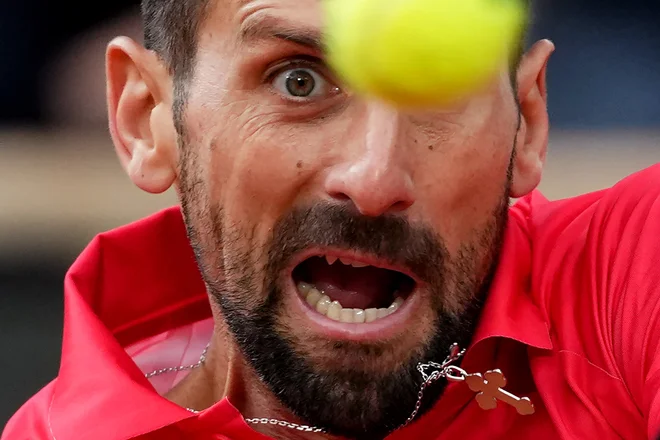Pieter Omtzigt wanted to be a difficult politician, but was seen more and more as a burden by his party
/s3/static.nrc.nl/images/gn4/stripped/data131058124-3a700d.jpg|https://images.nrc.nl/sT4g6IbMpG0jpln7bYabk9QTyKw=/1920x/filters:no_upscale()/s3/static.nrc.nl/images/gn4/stripped/data131058124-3a700d.jpg|https://images.nrc.nl/G__vLomltywJ7ZbdRRJfo_QAF8U=/5760x/filters:no_upscale()/s3/static.nrc.nl/images/gn4/stripped/data131058124-3a700d.jpg)
Pieter Omtzigt, founder, leader and figurehead of the New Social Contract (NSC) government party, leaves politics immediately. The future of his party, and of the coalition of which his party is a part, is suddenly even more uncertain than it was. In a video that he posted on social media on Friday evening, Omtzigt said that he is unable to recover from his burnout in The Hague. « That’s why I choose to put my family first for the first time, and choose my health. »
Omtzigt’s House of Representatives heard on Friday evening around 6 pm digitally about the departure of their party leader, one and a half hours before he posted the video.
In addition to Geert Wilders and Mark Rutte, Omtzigt is one of the most influential Dutch politicians of the past two decades. His personal, autonomous and contrary style brought him great popularity with voters, and led to the unveiling of the allowance scandal and, indirectly, to the fall of the third Rutte cabinet in 2021. But it was precisely this contradiction and personal involvement that also brought him into trouble at different times.
Pieter Omtzigt (1974) became a MP in 2003 on behalf of the CDA. Omtzigt, trained as an econometrist, spoke in particular for taxes and pensions for the first seven years. The general public only got to know him when he ended up on the draft list of the parliamentary elections in 2010 through a personal campaign. The party top found him difficult and wanted to get rid of him.
He even returned to the room with preferential votes. The CDA had fallen into disrepair and entered into a tolerance coalition with the PVV. Omtzigt, who was against that cooperation, often took a minority position in the group. He voted for the party congress before the collaboration.
Sharp way of debating
As a member of parliament, Omtzigt did not care much in the years whether he was part of the coalition or the opposition. He established a reputation as a persistent Member of Parliament, with a sharp way of debating, to always want to ask the tendency and request a continuous stream for even more information.
When the second Rutte cabinet ran into problems in 2013 due to revelations about fraud by Bulgarians with surcharges, Omtzigt was the most important driver of that. He demanded a hard approach to potential fraudsters. Six years later it was Omtzigt, together with SP’er Renske Leijten, who became the face of a counter -movement. RTL and Fidelity Systematic abuses revealed systematic abuses: citizens were ethnically profiled and already punished with the slightest mistake. Tens of thousands of citizens were duped by the hard approach of the government. Omtzigt continued to put this issue on the agenda. The Rutte III cabinet (VVD, CDA, D66 and ChristenUnie) fell over it in 2021.
Already in that period the two faces of Omtzigt were clearly visible. As the hard -working member of parliament dared to drive cabinets to the edge of the abyss, he became more popular among voters. But the price was high internally. Politics, because in the CDA they saw him as a whimsical factor, but also personally. He was known for his severe outbursts From emotion and anger. In 2021, Omtzigt qualified for the party leader of the CDA, but narrowly lost that election to Hugo de Jonge. They were relieved about this in the CDA summit.
/s3/static.nrc.nl/images/gn4/stripped/data131058094-f1e9d9.jpg|https://images.nrc.nl/2wCb8-gKm5QWWBbuCPGKWzTlhrU=/1920x/filters:no_upscale()/s3/static.nrc.nl/images/gn4/stripped/data131058094-f1e9d9.jpg|https://images.nrc.nl/hJXeLrYFhTH90R1fkYhlfQ7WSxo=/5760x/filters:no_upscale()/s3/static.nrc.nl/images/gn4/stripped/data131058094-f1e9d9.jpg)
Photo Sem van der Wal/ANP
In that context, the issue of ‘function elsewhere’ played, one of the largest political affairs surrounding Prime Minister Mark Rutte. Explorer Kajsa Ollongren was photographed while she was wearing a memorandum, on which it was read: ‘Omtzigt position: function elsewhere’. Omtzigt apparently spoke as a problem in the exploration.
Outgoing Prime Minister Rutte survived a parliamentary debate about that issue barely, but it was an affair that permanently changed politics. Many voters turned away from Rutte’s ‘old’, covering politics, while for many, Omtzigt became the face of a ‘new’, honest way of making politics. Omtzigt stepped out of the CDA shortly on this. He started working as a one -man group on a new political movement, which he founded in 2023, after a long hesitation.
Sense of community
From the start, NSC was mainly about the ideas and the person of Omtzigt. New social contract was named after a book of the same name that he wrote in 2021. The party stood for Omtzigt’s ideas: community spirit, family values, a government that focuses on core tasks such as energy, food and living. The party became the largest in polls, but also dropped quickly, partly because Omtzigt doubted for a long time whether he wanted to become prime minister. Nevertheless, the new party won twenty room seats and, again, despite major doubts at Omtzigt, she rule in a cabinet with the PVV.
/s3/static.nrc.nl/images/gn4/stripped/data131058367-f85681.jpg|https://images.nrc.nl/JdSsacYxk05kHux1ncfm3_xFLqM=/1920x/filters:no_upscale()/s3/static.nrc.nl/images/gn4/stripped/data131058367-f85681.jpg|https://images.nrc.nl/Fy53iCmIzdQe3eC6er7NcV3UGvw=/5760x/filters:no_upscale()/s3/static.nrc.nl/images/gn4/stripped/data131058367-f85681.jpg)
Photo Dieuwertje Bravenboer
The MPs and ministers of NSC thanked their seat or cabinet post to Omtzigt. Everyone knew that from the start, and that made criticism of the leader difficult. The first year of NSC ended up Omtzigt without major criticism from both members and party members in the Lower House. That changed in September last year. In NRC Participants spoke for the first time, without being mentioned by name, the desire that the party would turn a little less around Omtzigt. It was just after the conversations about the Budget Memorandum, in which Omtzigt had risen against the party leaders of coalition parties PVV, VVD and BBB.
Newspapers had described how Omtzigt had set demands on the budget of the cabinet until well into the night. And also how he had done that: screaming and crying. What had been described in media until then, but above all a public secret had been in The Hague, was suddenly discussed extensively, commented and confirmed by politicians of coalition parties.
In the group, concerns were concerned at that time about the great promises that NSC had made during the election time, which were not fulfilled after the formation. NSC wanted a new administrative culture, a extraparlautary cabinet, with more control from the Chamber of the Cabinet, less coordination than had happened in previous cabinets.
‘Deeper’
NSC’ers saw the opposite event in the first months of the coalition. MPs and ministers described by Omtzigt. He wanted to interfere with what happened in the cabinet. He was, certainly at the start of the Cabinet-Schoof Cabinet, close to the skin of NSC ministers and state secretaries. In return for NRC NSC started About the ‘denial’ of the party: there should be more room for what other members of the House of Representatives than Pieter Omtzigt wanted and found.
The evening that the piece was published, Pieter Omtzigt was a guest at a talk show on television. Faced with the criticism of his party members, Omtzigt said in front of the cameras that he would like it if he could give more out of his hands. After the broadcast he was angry, emotional. A few days later he reported that he would stay at home for a while, he would « take a step back » for his health. He left his young party at a crucial moment: just before Prinsjesdag, the first general political reflections in which NSC would participate, seen in The Hague as one of the most important parliamentary debates of the year.
Two and a half months later, Omtzigt returned, with the promise to take it easy. He shared the group chair with Nicolien van Vroonhoven, she did the weekly coalition interviews in the office of Geert Wilders, and especially at the beginning the media performances.
In the circle around him, in recent weeks you can hear that the situation is unworkable, that Omtzigt should make a choice
But immediately after returning, NSC members complained again. Omtzigt would like to attract files, take too much hay on his fork and be unpredictable. That was not denied until the party top. And in the coalition there was also complaining: because all the time, even when Omtzigt was at home, they got the impression that they had to negotiate with him indirectly about small and big things, because Van Vroonhoven was not allowed to decide anything without consulting Omtzigt. The holding line in which he kept the party, according to some party members, was untenable, they thought.
But whether anyone has ever said that to Omtzigt?
Nobody seems to dare. Instead, NSC’ers have been becoming more and more pronounced against journalists since the beginning of this year. In the circle around him, in recent weeks you can hear that the situation is unworkable, that Omtzigt should make a choice.
Free fall in polls
In polls, NSC has been in a free fall for months, it was not possible to turn that trend. Of the current twenty seats, about two would remain. The party that was seen less than a year and a half ago as a big promise that would shake in The Hague politics could now disappear. Omtzigt would not be concerned with that. But MPs and ministers who have canceled their jobs to be able to fight for the principles and promises of NSC would be empty -handed, and they are indeed working on it.
In the video that Omtzigt posted on social media on Friday evening, he says that « real recovery » of his burnout « just doesn’t work in the hectic pace of current politics in The Hague. » The fact that Omtzigt was not recovered last year even after the interruption of the Chamber Work last year was especially visible when the cameras got out. More than once he ignited in a furious or emotional mood among journalists, also at NRC.
It was Van Vroonhoven who later had to call to smooth the folds. Even before the establishment of NSC, she was an important mainstay for Pieter Omtzigt. Now that he is leaving national politics, she takes over the group chair of him. She has been able to practice well in recent months. But in the coalition they see NSC as an unstable party, which often surprises the others. That image is only confirmed this good Friday.
Read also
Also read this interview with Nicolien van Vroonhoven from December 2024

:format(webp)/s3/static.nrc.nl/images/gn4/stripped/data132512191-bf7b93.jpg)
/s3/static.nrc.nl/images/gn4/data133305174-ec8c91.jpg)





